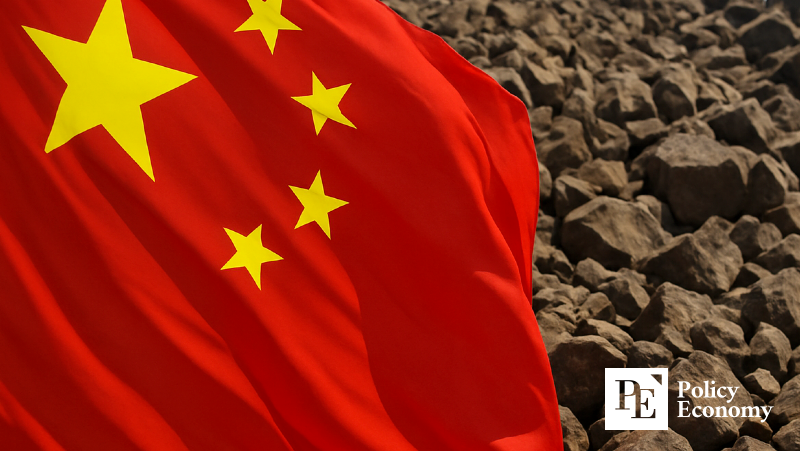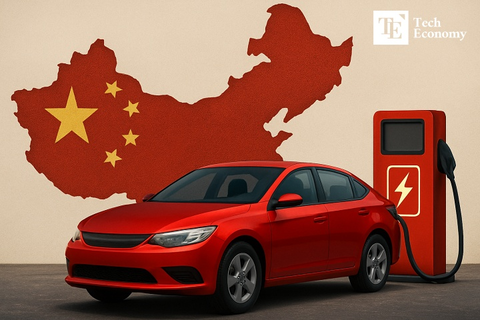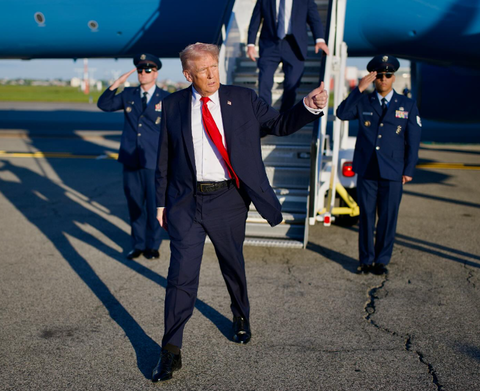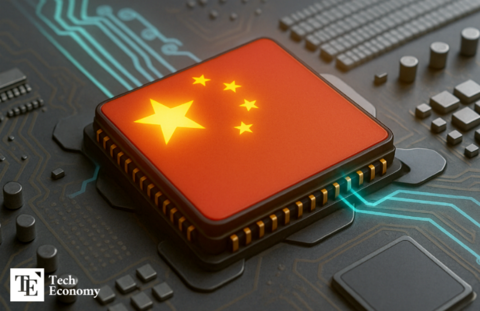Global Auto Industry Reels from Rare Earth Controls, While China's Ministry of Commerce Says "Rapid Rare Earth Exports to Europe"
Input
Changed
"Global Auto Production at Risk Due to Rare Earth Export Controls" "China’s Ministry of Commerce to Expedite Rare Earth Export Permits for EU Companies" "China’s Rare Earth Card Sends Shockwaves Beyond the U.S. to the Entire World"

In the heart of the global race toward electrification, the automotive industry finds itself at the mercy of a powerful geopolitical gatekeeper—China. With the world’s most dominant rare earth refining capacity, Beijing’s latest export controls on these critical minerals have rattled the very foundation of global manufacturing. From high-performance electric motors to precision sensors, rare earth elements are the invisible fuel of modern vehicles. Now, as bottlenecks widen and factories slow down, the international community is grappling with the consequences of centralized resource control—and looking to China for reprieve.
Green Channel Amid EU Concerns
Amid escalating tensions over rare earth supply disruptions, China has moved to address mounting concerns from the European Union by promising faster export approvals. On June 8, the Financial Times reported that the Ministry of Commerce of China announced the creation of a “green channel” to accelerate the screening and approval process for companies that meet specific criteria. He Yucheng, spokesperson for the Ministry, stated that rare earth materials are subject to international norms due to their dual-use nature—applicable in both military and civilian domains—justifying the country’s export control measures.
This policy clarification followed a high-level meeting on June 3 in Paris between China’s Minister of Commerce, Wang Wentao, and Maroš Šefčovič, the EU Commissioner for Trade and Economic Security. Šefčovič conveyed the EU’s serious concerns over delivery delays for key industrial products such as automobiles and home appliances. He urged China to either lift restrictions on civilian-use rare earth items or allow European companies to operate under annual import permits, offering a stable framework to navigate the new regulatory environment.
The backdrop to these talks was China’s decision, implemented on April 4, to place seven rare earth elements under strict export control—samarium, gadolinium, terbium, dysprosium, lutetium, scandium, and yttrium. Exporters of these elements and their associated alloys, oxides, and compounds are now required to obtain prior approval from relevant authorities. To institutionalize oversight, China recently introduced a comprehensive online reporting system mandating disclosure of transaction volumes and client details, a move aimed at enhancing traceability but criticized for increasing bureaucratic friction.
Production Lines Stall as Shortages Spread
The consequences of these policies have quickly become visible on the factory floor. Europe’s auto supply chain is showing signs of distress. The European Association of Automotive Suppliers (CLEPA) revealed that hundreds of export license applications had been submitted to Chinese authorities, yet only about 25% had been approved. As a result, several automotive parts manufacturers in Europe have seen their production lines grind to a halt.
The shockwaves have extended far beyond Europe. In the United States, Ford Motor Company was forced to suspend production for a week at its Chicago plant last month due to a lack of rare earth materials needed for its flagship Explorer SUV. In Germany, premium automakers like Mercedes-Benz and BMW have scrambled to secure sufficient stockpiles, intensifying their procurement efforts. Japan has also been hit: Suzuki halted production of its compact Swift model at the end of May due to similar constraints.
Rare earth elements are not merely niche materials—they are central to nearly every modern automotive subsystem. From automatic transmissions and power steering to lighting, sensors, and especially electric vehicle (EV) propulsion systems, these minerals play indispensable roles. Permanent magnets, for example, rely on neodymium, dysprosium, yttrium, and samarium to deliver high-output performance and thermal durability essential for electric motor efficiency. As the automotive sector accelerates toward full electrification, reliance on these rare earths is not only growing—it's becoming unavoidable.

A Tight Grip on Global Industry
While China's justification for export controls centers on national security, critics argue the broader impact has been disruptive and disproportionate. The Ministry of Commerce’s Bureau of Industrial Safety and Export Control—the unit responsible for issuing export permits—has been singled out for its slow and complex approval procedures. A Reuters report from June 7 highlighted that since May, this bureau has held exclusive authority over licensing for rare earth magnets, and its handling of the process has created a new choke point not only for the auto industry but also for the semiconductor and aerospace sectors.
This concentrated control has sparked alarm across global supply chains, leading to accusations that a small group of Chinese officials now wield immense power over critical manufacturing inputs. The EU Chamber of Commerce in China voiced strong criticism through its Secretary General, Adam Dunnett, who warned that the abrupt rollout of regulatory changes had already caused widespread confusion and operational delays across industries. He also emphasized that even products clearly intended for civilian use are being subjected to excessive scrutiny, complicating trade without clear justification.
Further compounding the issue, companies applying for export permits report being asked to submit detailed, proprietary technical data—information that, in many cases, constitutes sensitive intellectual property. Though China officially commits to processing license applications within 45 working days, the regulation includes a loophole: national security–related cases are exempt, effectively allowing authorities to delay approvals indefinitely. This lack of transparency and predictability has heightened unease within both global boardrooms and policy circles.





















